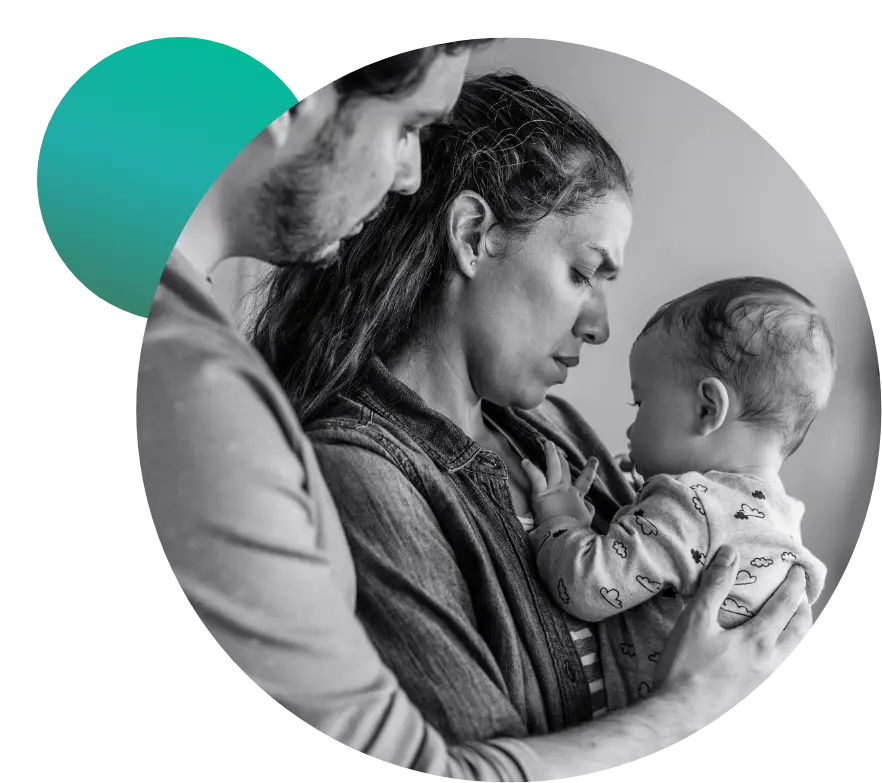
WHAT IS RSV?
RSV is a highly contagious virus that can lead to respiratory illness in babies, including lung infections such as bronchiolitis and pneumonia.
RSV infections can go from mild symptoms to hospitalization in less than a week.
Mild symptoms may include a runny nose, sneezing, and coughing, while severe symptoms can include wheezing and difficulty breathing.
That means the best time to learn about RSV is before your baby does.
Talk to your healthcare professional about RSV prevention options that may be available for your baby
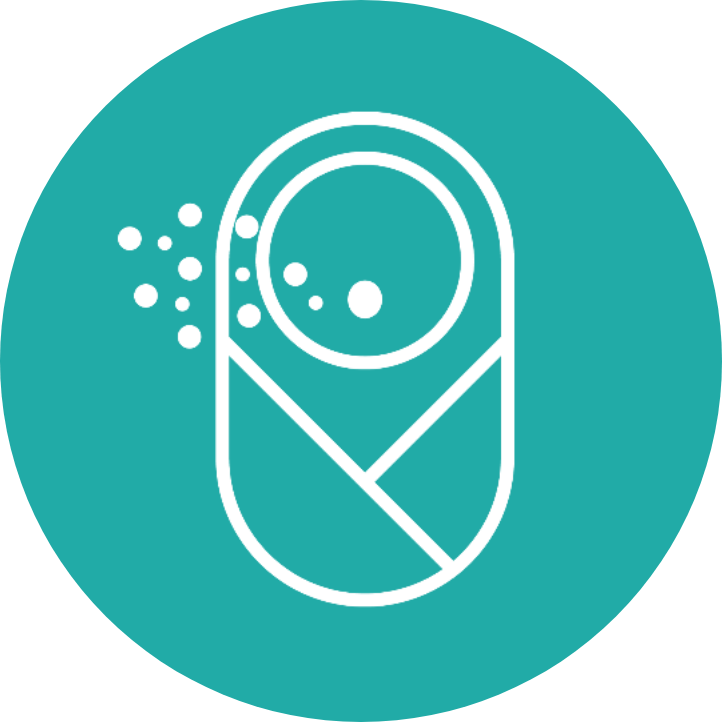
Bronchiolitis (bron-key-oh-lie-tis) is a viral infection in the smallest airways in the lungs (bronchioles). When the bronchioles swell and become inflamed, mucus may build up, leading to congestion and difficulty breathing. Most cases of bronchiolitis are caused by RSV.
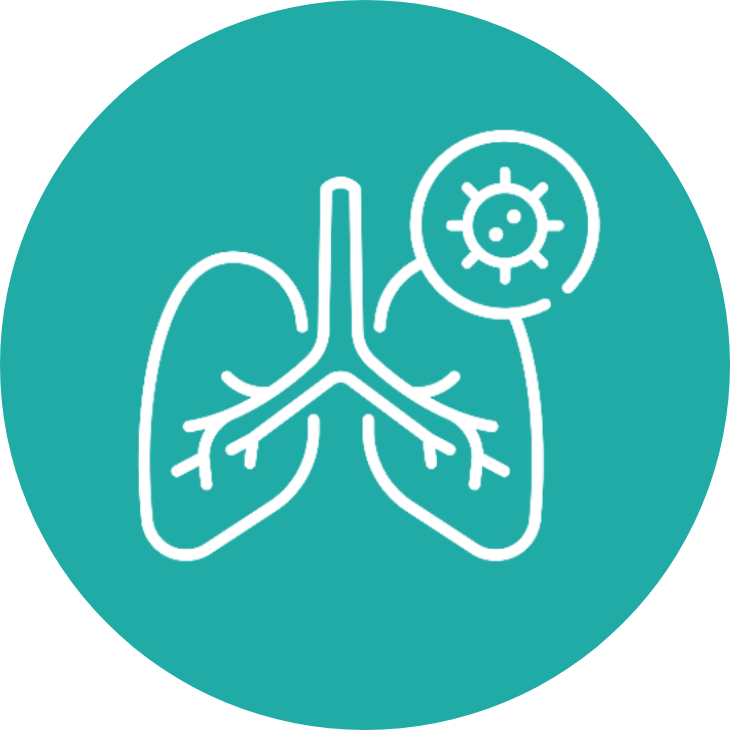
Pneumonia (noo-mohn-yuh) is a lung infection that can cause mild to severe coughing, fever, and trouble breathing.
If an infant or young child has bronchiolitis or pneumonia, RSV is a likely cause

RSV FAST FACTS
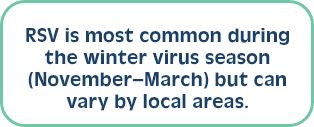
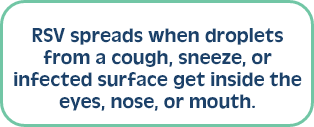
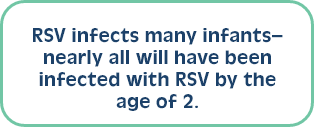
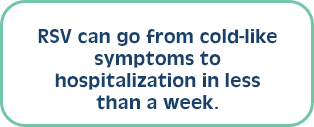
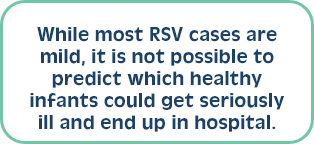
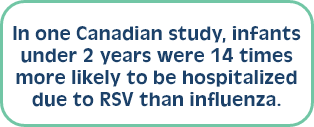
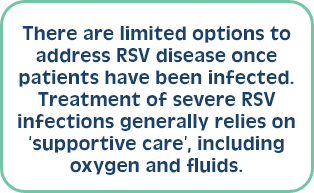
RSV SIGNS & SYMPTOMS
RSV can often mimic a cold or the flu.
But as the infection becomes more severe, so do the symptoms.
Keep a close eye on your baby if you notice any of the following:

Coughing

Runny nose

Wheezing

Decreased appetite

Sneezing

Fever

Congestion
In babies under 6 months, the only RSV symptoms they may show are irritability, decreased activity, decreased appetite, difficulty breathing, and reduced fluid intake.
WHEN TO CONTACT A DOCTOR
If you notice any of the following in your baby, contact their doctor right away:
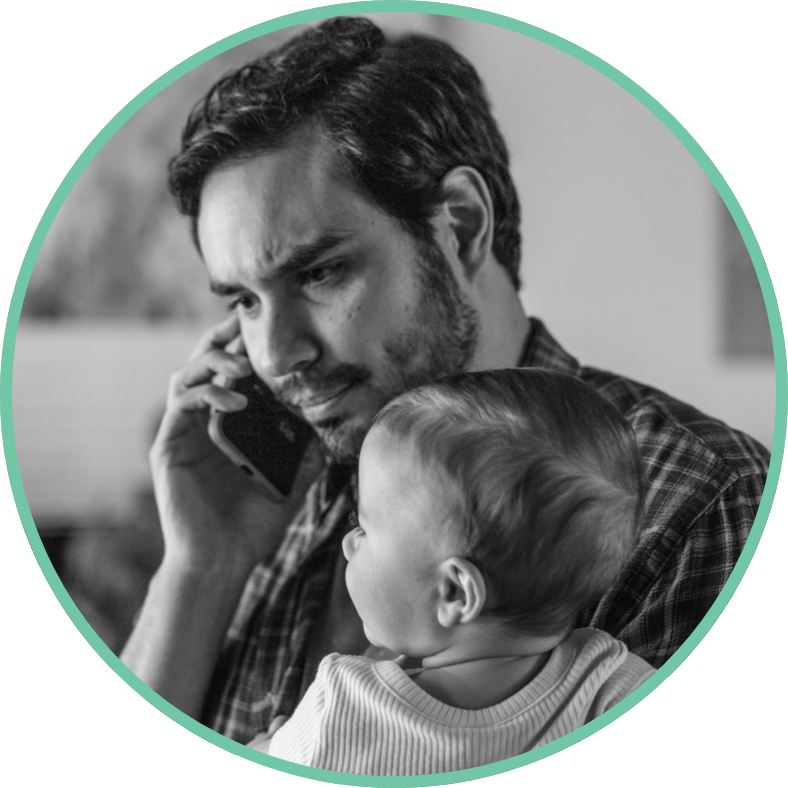
Short, shallow, and abnormally fast breathing:
Look for chest wall retractions. Think of chest wall retractions as a “caving-in” of the chest in between and under the ribs.
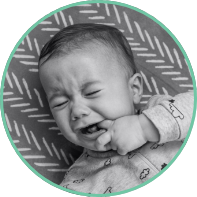
Your baby has a wheezing cough.
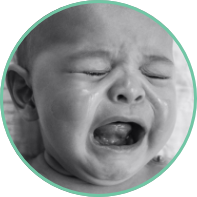
Nasal flaring:
When your baby’s nostrils spread out with every breath.
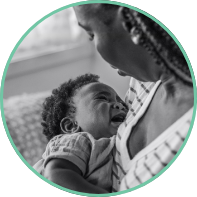
Your baby is unusually tired or has a blue tint to their lips or fingernails.
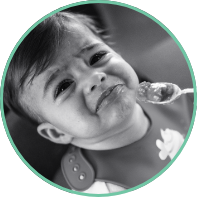
Your baby has poor feeding.
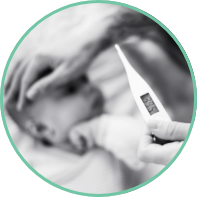
Your baby has a fever:
- 38°C (100.4°F) or higher for a baby younger than 3 months
- 39°C (102.2°F) or higher for a baby older than 3 months
RSV STORIES
Explore the stories of other parents whose children have experienced RSV.
HELP PROTECT YOUR BABY
RSV is easily spread through coughs, sneezes, and close physical contact, like cuddles and kisses.
Talk with your family and friends about practicing the following healthy habits to help protect your baby from RSV:
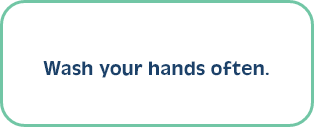
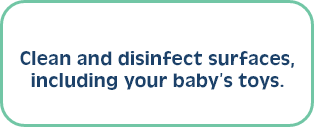
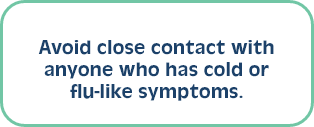
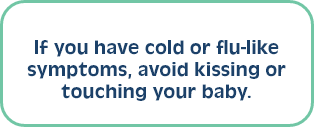
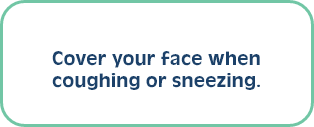
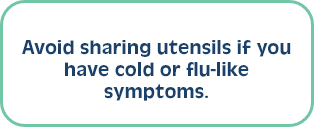
Talk to your healthcare professional about RSV prevention options that may be available for your baby
%20x3.png)
.png)
